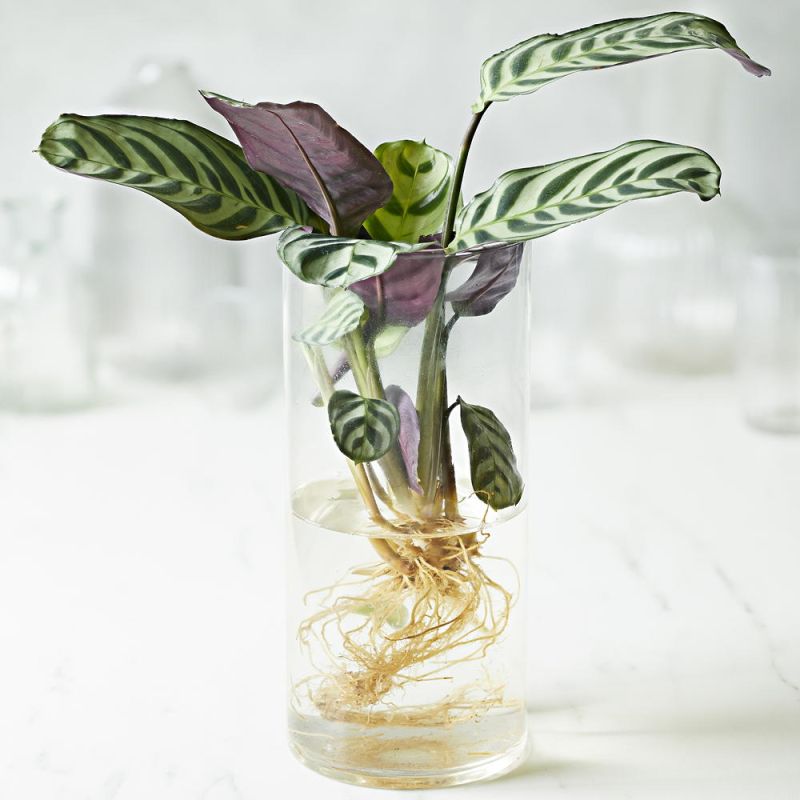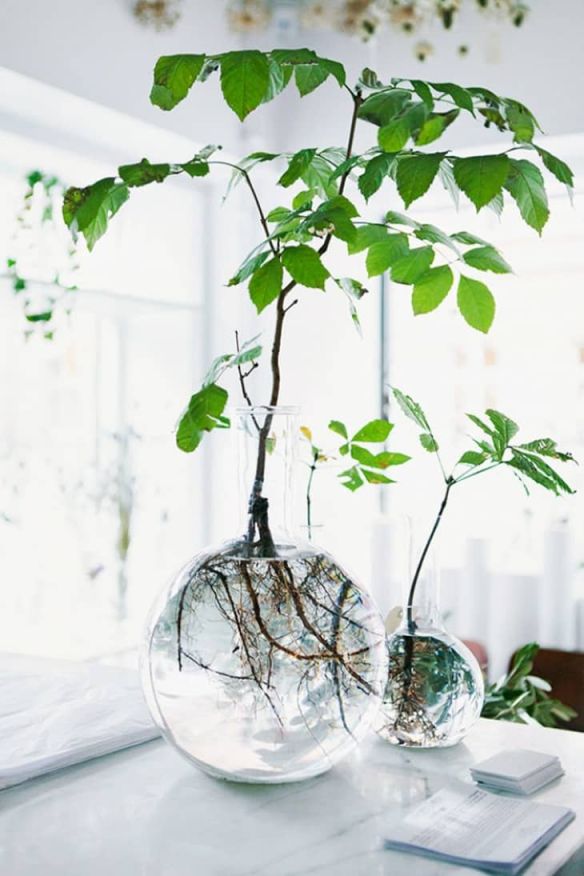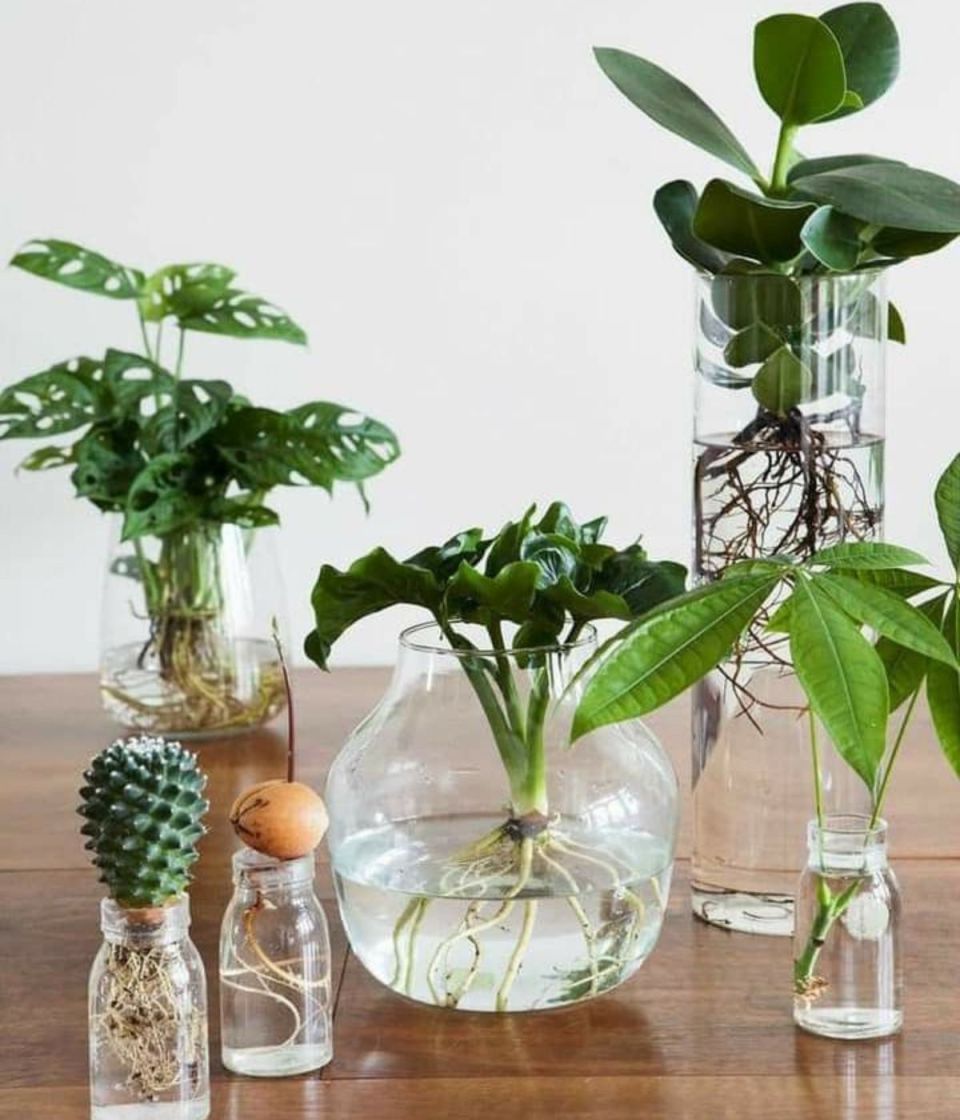Level Up Your Green Thumb: Exploring The World Of Hydroponic House Plants

House Plants Hydroponics: A Modern Approach to Indoor Gardening
What do you mean by House Plants Hydroponics?
House plants hydroponics is a revolutionary technique of growing plants indoors without soil. Instead of relying on traditional soil-based gardening, hydroponics utilizes a water-based nutrient solution to deliver all the essential elements directly to the plant roots. This method allows gardeners to cultivate a wide variety of plants in a controlled environment, ensuring optimal growth and health.
How does House Plants Hydroponics work?
In hydroponics, plants are grown in a nutrient-rich solution that is carefully balanced to provide all the necessary minerals, vitamins, and elements required for healthy growth. The plants receive this solution through their root systems, which are either submerged directly into the solution or supported by an inert growing medium like perlite, coconut coir, or rockwool. Oxygen is also supplied to the roots, ensuring they receive adequate aeration.

Hydroponics systems can be categorized into different types, including deep water culture (DWC), nutrient film technique (NFT), aeroponics, and ebb and flow. Each system has its own unique way of delivering the nutrient solution and managing water levels, but the fundamental principle remains the same – providing plants with an optimal environment for growth.
What is known about House Plants Hydroponics?
House plants hydroponics has gained immense popularity among indoor gardening enthusiasts due to its numerous advantages. Research has shown that hydroponic plants tend to grow faster and produce higher yields compared to their soil-grown counterparts. This is primarily because plants in hydroponic systems can absorb nutrients more efficiently and focus their energy on growth rather than searching for nutrients in the soil.

Moreover, hydroponics eliminates the risk of soil-borne diseases and pests since there is no soil involved. This makes it a clean and sustainable gardening method. Additionally, hydroponic systems require significantly less water compared to traditional soil-based gardening, making them an environmentally friendly choice.
House plants hydroponics is not limited to large-scale commercial operations; it can be easily practiced on a smaller scale in homes, apartments, or even offices. With the right setup and proper care, anyone can enjoy the benefits of indoor gardening through hydroponics.
Solution for House Plants Hydroponics
Getting started with house plants hydroponics may seem daunting, but it is actually quite simple. Here are some key steps to help you set up your own hydroponic system:
1. Choose your plants: Select plants that are well-suited for hydroponic cultivation, such as lettuce, herbs, tomatoes, or peppers. These plants generally thrive in water-based environments.
2. Select a hydroponic system: There are various hydroponic systems available, ranging from simple DIY setups to more advanced systems. Consider factors such as space availability, budget, and personal preference when choosing a system.
3. Provide appropriate lighting: Since plants won’t have access to natural sunlight indoors, you’ll need to invest in a good quality grow light. LED grow lights are a popular choice for indoor gardening as they are energy-efficient and provide the right spectrum of light for plant growth.
4. Mix the nutrient solution: Follow the instructions provided with your hydroponic system to prepare the nutrient solution. It’s crucial to ensure the solution is properly balanced with the right amount of nutrients for optimal plant growth.
5. Monitor and maintain: Regularly check the pH level and nutrient levels in the solution and adjust them as needed. Keep an eye on plant growth, water levels, and any signs of disease or pests. Proper maintenance will ensure healthy plants and a thriving hydroponic garden.
More Information about House Plants Hydroponics
House plants hydroponics offers several advantages over traditional gardening methods. The controlled environment allows for year-round cultivation, irrespective of seasonal variations. It also provides better control over plant nutrition, resulting in higher quality produce with enhanced flavor and nutrient content.
Hydroponic systems can be tailored to suit various plant types and sizes, making them highly versatile. They can be set up vertically to maximize space utilization, making them ideal for urban dwellers with limited gardening space.
Furthermore, hydroponics promotes sustainable agriculture by minimizing water usage and reducing the need for chemical fertilizers. It also eliminates the use of pesticides, making the produce healthier and safer for consumption.
Conclusion
House plants hydroponics is a game-changer in the world of indoor gardening. With its ability to provide plants with optimal nutrition and a controlled environment, it offers a modern and efficient approach to growing plants without relying on soil. Whether you’re a gardening enthusiast or a beginner, hydroponics opens up endless possibilities for cultivating a lush and thriving garden indoors.
FAQs about House Plants Hydroponics
1. Can I grow any plant using hydroponics?
While hydroponics is suitable for growing a wide variety of plants, certain plants may be better suited for this method due to their water requirements and root structures. It’s best to research and select plants that are known to thrive in hydroponic systems.
2. How often do I need to change the nutrient solution?
The frequency of changing the nutrient solution depends on various factors such as plant type, system size, and water evaporation rates. As a general guideline, it is recommended to change the solution every two to three weeks.
3. Can I reuse the nutrient solution?
In some cases, the nutrient solution can be reused by replenishing the depleted nutrients. However, it’s essential to monitor the solution’s pH levels and nutrient concentration to ensure optimal plant growth. Eventually, the solution may need to be replaced entirely.
4. Is hydroponics suitable for beginners?
Yes, hydroponics can be suitable for beginners. Starting with a simple and small-scale system can help new hydroponic gardeners learn the basics while minimizing complexity. As they gain experience, they can gradually expand their setup and try more advanced techniques.
5. Are there any disadvantages to hydroponics?
While hydroponics offers numerous benefits, it does require a level of investment in terms of equipment, lighting, and nutrient solutions. Additionally, initial setup and maintenance may require some learning and effort. However, the rewards of healthy and abundant plant growth make it a worthwhile endeavor.

I am a beginner writer who continues to learn and consistently creates informative articles to express the ideas that I master.